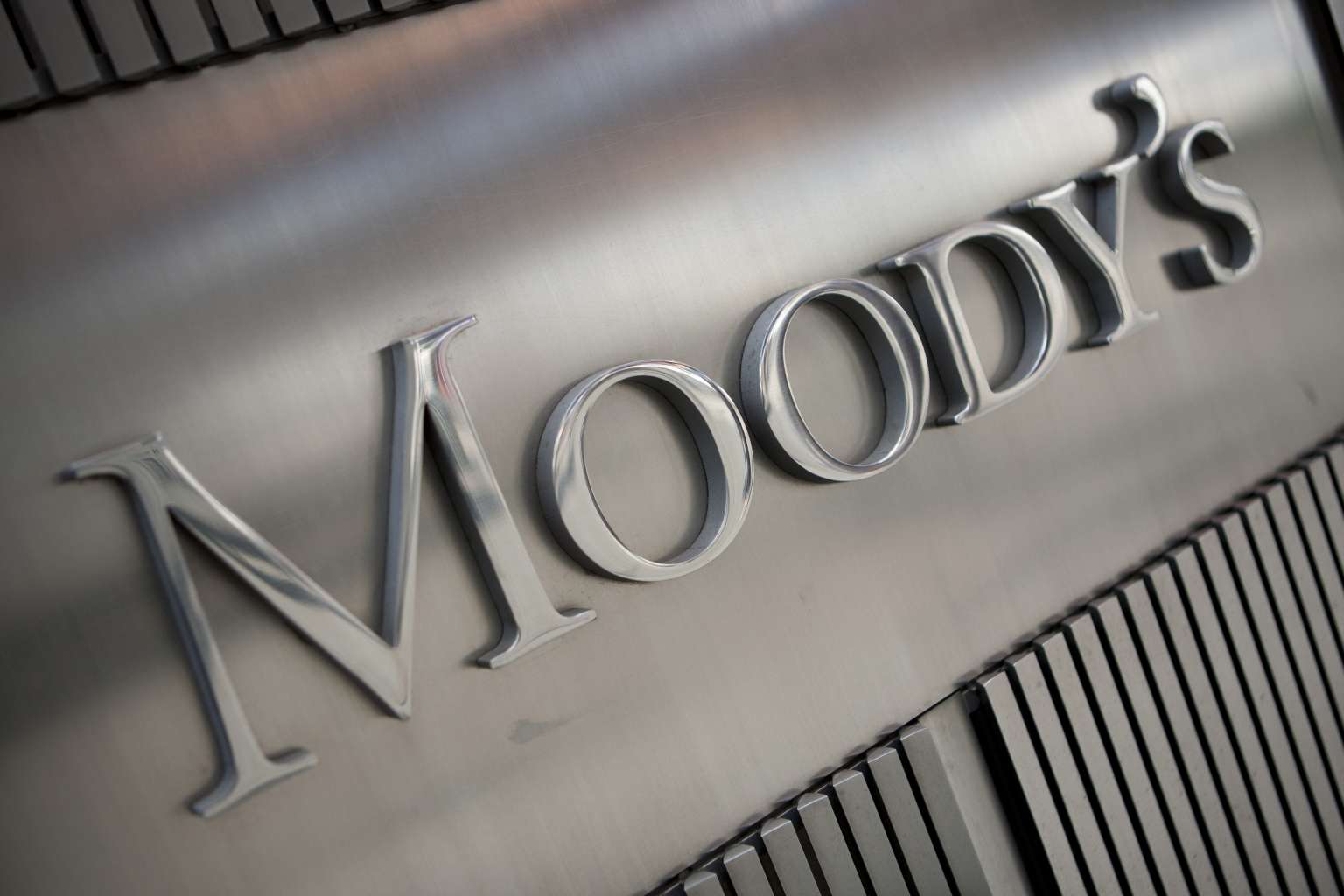Pressure on Singapore banks' credit costs, interest margins should subside in 2017: Moody's
Sign up now: Get ST's newsletters delivered to your inbox

The Moody's Investors Service Inc. logo is displayed outside of the company's headquarters in New York, US.
PHOTO: BLOOMBERG
Follow topic:
SINGAPORE - Moody's Investors Service said the just-released fourth quarter and full-year 2016 financial results of Singapore's Big Three banks reveal a further decline in profitability and mixed asset quality performance, but pressure on credit costs and net interest margins should subside in 2017, providing support to profitability.
"The continued asset quality challenges at DBS Bank and Oversea-Chinese Banking Corp are in line with our expectations, and were mainly driven by their exposures to the embattled oil & gas service industry," said Mr Eugene Tarzimanov, a Moody's vice president and senior credit officer, in a report released on Tuesday (Feb 21).
"By contrast, asset performance at United Overseas Bank has improved, and was better than we had expected, driven by fewer new nonperforming loans related to the oil & gas industry, as well as recoveries and write-offs," he added.
The three banks' return on assets continued to decline in 2016 due to elevated credit costs and weaker revenue growth.
"Despite these challenges, the three banks' loss-absorption buffers have remained robust; specifically, they recorded higher fully loaded Common Equity Tier 1 ratios during 2016 - due to slow growth in risk-weighted assets - which provide support to their very high credit ratings," said Mr Tarzimanov.
He said that Moody's expects asset quality challenges posed by the troubled oil & gas service companies to persist over the next few quarters.
But the credit rating agency noted that new non-performing asset formation rates fell in Q4 2016 from their peaks in Q2 2016, signaling a potential stabilisation in asset quality metrics for the banks in 2017.
"Furthermore, even if oil market conditions deteriorate, we as more resilient in coping with such a situation, because many weak firms in the oil and gas service industry have either already defaulted, or restructured their liabilities," said Moody's.
The banks had also mostly trimmed their exposure to oil & gas service companies during 2016, and related loans now represent only 2 per cent of their total loans, Moody's added.
Outside their oil & gas exposure, the quality of the banks' remaining loan portfolio, including their regional exposures, was fairly stable in 2016, said the agency.
As for events overseas that will affect the Singapore banks, Moody's said it expects around three interest rate increases by the US Federal Reserve in 2017. They will have a pass-through effect on interest rates in Singapore through the currency channel. According to the banks. the pass-through effect could be in the 40 to 60 per cent range.
Capital strengthening measures - such as the application of scrip dividend schemes where shareholders receive shares instead of cash dividends - will also help the banks maintain their current capital levels, Moody's said, adding that DBS and UOB will offer scrip dividends for 2016.

